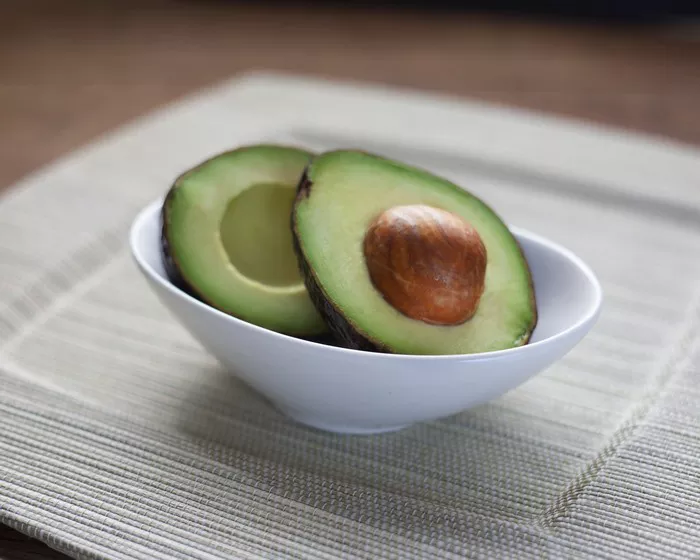Avocado, with its creamy texture and rich flavor, has garnered attention as a superfood in recent years. Packed with nutrients and healthy fats, it’s often lauded for its various health benefits. But for breastfeeding mothers, the question arises: Is avocado a beneficial addition to their diet? In this comprehensive guide, we delve into the nutritional profile of avocados, their potential benefits and considerations for breastfeeding mothers, and provide evidence-based insights to help mothers make informed dietary choices during this critical stage of motherhood.
Understanding the Nutritional Profile of Avocado
Avocado, scientifically known as Persea americana, is a fruit native to Central America and Mexico. While commonly mistaken for a vegetable due to its savory taste, avocados are technically classified as fruits and belong to the Lauraceae family. One of the most distinctive features of avocados is their high fat content, primarily in the form of monounsaturated fats.
A 100-gram serving of avocado typically contains the following nutrients:
- Calories: Approximately 160 kcal
- Protein: Around 2 grams
- Fat: Roughly 15 grams (predominantly monounsaturated fats)
- Carbohydrates: Approximately 9 grams
- Fiber: Around 7 grams
- Vitamins and minerals: Avocados are rich in vitamins C, E, K, and B vitamins, as well as potassium, magnesium, and folate.
The high-fat content of avocados, coupled with their impressive array of vitamins and minerals, makes them a nutrient-dense food choice. Monounsaturated fats, in particular, are known for their heart-healthy benefits and may contribute to overall well-being.
Benefits of Avocado Consumption for Breastfeeding Mothers
For breastfeeding mothers, maintaining a balanced diet is essential for both maternal health and the nutritional needs of the infant. Avocado consumption offers several potential benefits that can positively impact both mother and baby during the breastfeeding period:
1. Nutrient Density: Avocados are packed with essential nutrients, including vitamins, minerals, and healthy fats. Incorporating avocados into a breastfeeding mother’s diet can help ensure she receives adequate nourishment to support her own health and lactation.
2. Healthy Fats: The monounsaturated fats found in avocados are beneficial for heart health and may help maintain optimal cholesterol levels in breastfeeding mothers. Additionally, these fats provide a concentrated source of energy, which can be advantageous during the demanding postpartum period.
3. Folate Content: Folate, also known as vitamin B9, is crucial for DNA synthesis and cell division. Adequate folate intake is especially important during pregnancy and lactation to support the rapid growth and development of the infant. Avocados are a good source of folate, making them a valuable addition to the diet of breastfeeding mothers.
5. Hydration: Proper hydration is vital for breastfeeding mothers to support milk production and maintain overall hydration status. Avocados have a high water content, which can contribute to hydration when consumed as part of a balanced diet.
6. Satiety and Weight Management: The combination of healthy fats, fiber, and water in avocados can help promote feelings of fullness and satiety, potentially aiding in weight management for breastfeeding mothers.
Considerations for Avocado Consumption During Breastfeeding
While avocados offer numerous health benefits, there are certain considerations that breastfeeding mothers should keep in mind when incorporating them into their diet:
1. Allergies: Although rare, avocado allergy can occur in some individuals, including breastfeeding mothers and their infants. If either the mother or infant has a known avocado allergy or experiences symptoms such as hives, itching, or swelling after consuming avocado, it’s essential to seek medical advice and consider eliminating avocado from the diet.
2. Moderation: While avocados are nutrient-dense, they are also calorie-dense due to their high-fat content. Breastfeeding mothers should consume avocados in moderation as part of a balanced diet to avoid excessive calorie intake, which could contribute to weight gain.
3. Variety: While avocados offer valuable nutritional benefits, it’s essential for breastfeeding mothers to consume a diverse range of foods to ensure they obtain a wide spectrum of nutrients. Incorporating a variety of fruits, vegetables, lean proteins, whole grains, and dairy products into the diet can help meet nutritional needs during lactation.
4. Organic vs. Conventional: Some individuals prefer to choose organic avocados to minimize exposure to pesticides and other chemicals. While organic options may be preferable for some, conventional avocados are still considered safe for consumption and can provide similar nutritional benefits.
5. Preparation Methods: How avocados are prepared can impact their nutritional profile. Opting for fresh, whole avocados or homemade guacamole without added sugars or unhealthy fats is ideal. Avoiding processed avocado products that may contain added sugars, sodium, or preservatives is recommended.
Conclusion
In conclusion, avocados can be a beneficial addition to the diet of breastfeeding mothers due to their nutrient density, healthy fats, and potential health benefits. Incorporating avocados into meals and snacks can help provide essential nutrients, support lactation, and contribute to overall maternal health and well-being. However, it’s essential to consume avocados in moderation as part of a varied and balanced diet and to consider individual factors such as allergies and dietary preferences. By making informed dietary choices, breastfeeding mothers can optimize their nutrition and support the health and development of both themselves and their infants during this critical stage of motherhood.


